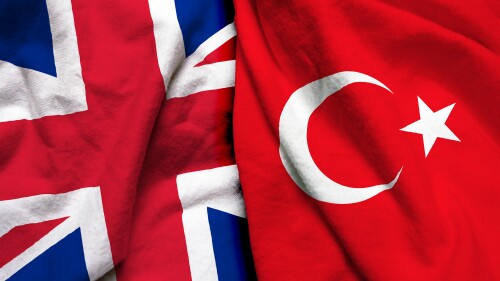The Islamic Revolutionary Guard Corps’ (IRGC) Qods Force for decades has transported men and weaponry to Hezbollah in Lebanon. They favored two main pathways: the “land bridge” across Iraq and Syria, or by air to Damascus or Beirut. The IRGC often used Mahan Air to shuttle passengers and weaponry, notwithstanding U.S. sanctions on the airline.
In the aftermath of Syrian President Bashar al-Assad’s fall, Syrian airspace closed to Iranian aircraft and Mahan Air has adapted by rerouting its flights over Turkish airspace. Between December 13, 2024, and the end of the year, Mahan Air flew 11 flights between Tehran and Beirut using a fleet of Airbus A340s and an Airbus A300B4-622R. Open-source flight monitoring tracked the alteration in the previous Iran-Lebanon routings.
It appears Ankara now tolerates, if not actively facilitates, Iran’s transfer of arms and personnel to Hezbollah and it suggests a strategic alignment with Iranian interests in the region.
The continued operation of Mahan Air flights over Turkey suggests a level of cooperation between the Turkish government and the IRGC. Turkey maintains tight control over its airspace, often denying Armenian and Israeli planes access to its airspace, for example, and so the idea that so many Mahan Air flights make it through is not credible unless deliberate. Instead, it appears Ankara now tolerates, if not actively facilitates, Iran’s transfer of arms and personnel to Hezbollah and it suggests a strategic alignment with Iranian interests in the region.
NATO ally or not, the cost of ignoring Turkey’s complicity with Mahan Air is high. During the recent conflict between Israel and Hezbollah, Hezbollah utilized Iranian-made weapons, including Almas top-attack anti-tank missiles, Model-358 anti-UAV drones, and various one-way attack drones. Mahan Air’s Airbus A340 smuggled a significant portion of these weapons into Lebanon. Moreover, the presence of Qods Force personnel on these flights, often using civilian passengers as human shields to avoid interception by the Israeli Air Force, underscores the strategic importance of these operations for Iran’s broader regional objectives.
As of January 2025, Mahan Air boasts a fleet of 22 Airbus A340 aircraft, despite leasing some to Venezuela’s Conviasa and grounding others for maintenance. The seven remaining operational aircraft, however, play a crucial role in sustaining the IRGC’s logistical and financial support for its proxy forces in Lebanon.
In response to this evolving threat, the U.S. Department of State and the Department of the Treasury should take measures to disrupt the Qods Force operations. Diplomatic engagement with Turkey is necessary to ensure the closure of Turkish airspace to Iranian flights. Additionally, the Treasury Department should expand its sanctions on Mahan Air by including newly acquired Airbus A340 aircraft. Should diplomatic efforts prove insufficient, secondary sanctions targeting Turkey’s Directorate General of Civil Aviation could be a viable means of applying pressure on Turkey to halt these flights.







